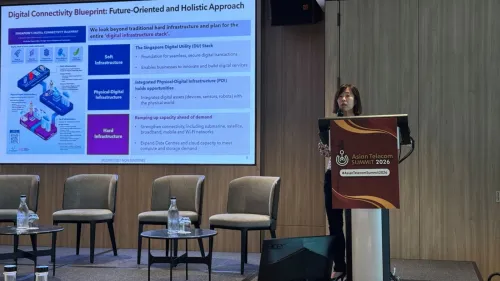Malaysia’s new social media licensing sparks compliance challenges
New licensing requirement attempts to combat cyber offences.
Malaysia's new rule requiring social media services with over 8 million users to obtain a licence by August 1 is poised to create significant compliance challenges for companies operating in the country.
The Malaysian Communications and Multimedia Commission (MCMC) announced the regulation to strengthen its fight against cyber offences, including scams, cyberbullying, and sexual crimes. However, this move has sparked concerns about the implications for businesses, particularly regarding legal risks and data protection.
Siraj Jalil, President of the Malaysia Cyber Consumer Association (MCCA), highlighted the increased obligations companies will face under this new rule. “Any company must enhance their obligations for data protection, including the need for clear and transparent data handling practices,” Jalil said.
He emphasised that firms must ensure robust data handling processes, from the collection of consumer information to secure storage, to comply with the new regulations. Non-compliance could lead to severe penalties, including fines, legal actions, or even suspension of services in Malaysia. "Failure to comply with this regulation could result in significant fines, legal action or even suspension of services within Malaysia," he warned.
Dr. Husin Jazri, Associate Professor at Taylor’s University, noted that international companies might feel the brunt of these regulations more than local firms. “I think this will be affecting a lot more international companies that are operating in Malaysia, more than companies that are operating a local company,” Dr. Jazri said.
He pointed out that the global nature of social media content and operations means that many international companies will need to navigate complex cross-border regulatory landscapes, adding an extra layer of difficulty to compliance efforts.
The new licensing rule also has broader implications for the enforcement of existing cybercrime laws in Malaysia. While Dr. Jazri believes that the new regulation will not fundamentally alter the enforcement framework, it could enhance the government's ability to monitor and control digital content.
"Not much changes would happen in terms of the enforcement of cyber crimes law in Malaysia, because these laws... can operate independently," he explained. However, he acknowledged that the new licensing requirement might facilitate enforcement in specific contexts, particularly concerning content that breaches Malaysian laws.
The legal landscape in Malaysia is likely to become more complex as companies adjust to the new rule. Jalil indicated that there might be a surge in litigation as businesses and regulators grapple with the new requirements.
He also suggested that the new rule could increase collaboration between IT and legal sectors, with lawyers playing a crucial role in advising businesses on navigating these regulations and minimising legal risks.
Moreover, the introduction of the licensing requirement could elevate the role of Malaysia’s cyber court, which has been relatively underutilised in the past. Jalil predicted that the cyber court would gain prominence as the new regulations come into force, making it a central venue for resolving disputes related to digital content and compliance.










